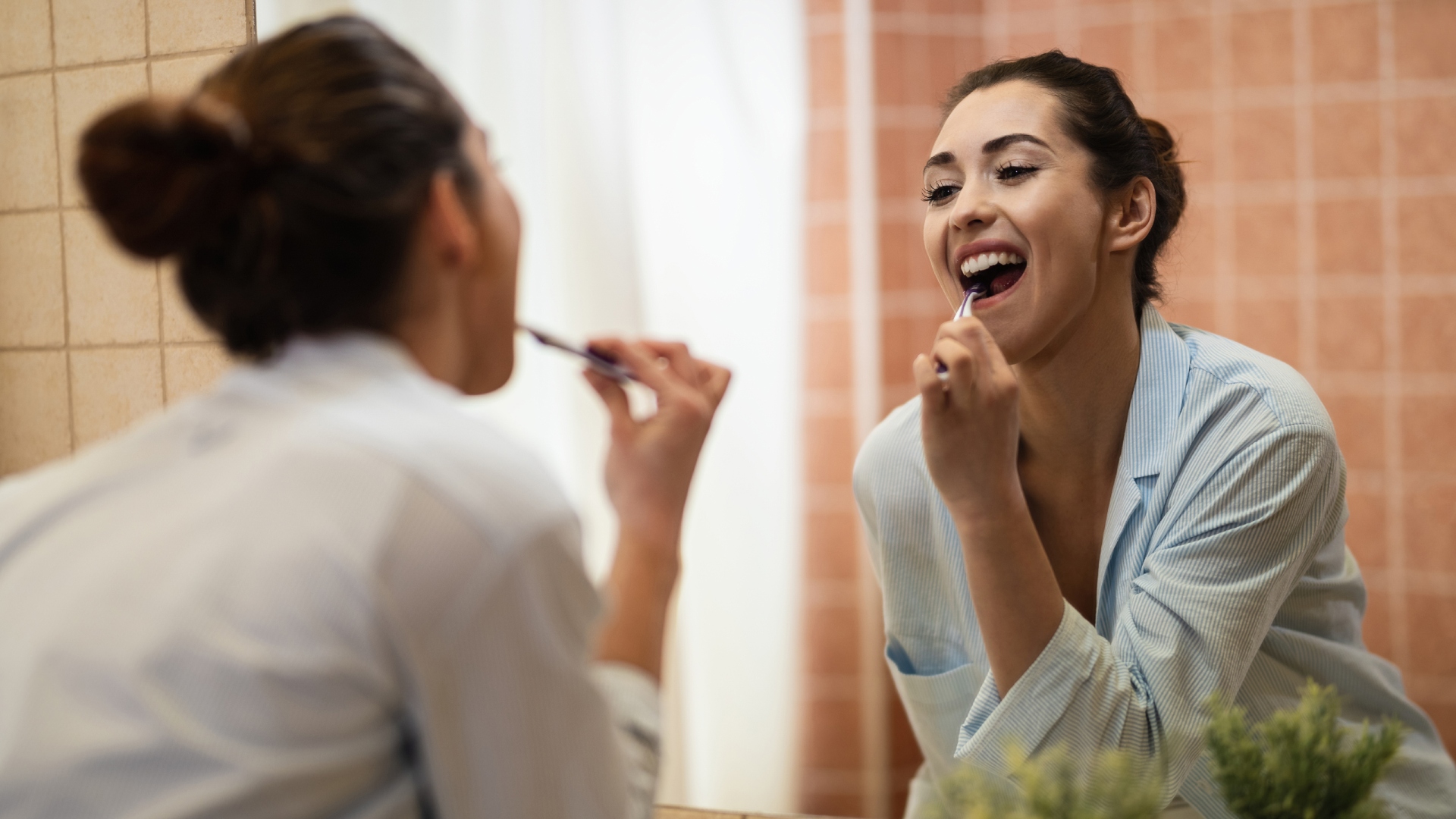
Cleaning your teeth before bedtime tends to be an automatic habit. However, as per sleep specialist James Wilson, this seemingly innocuous action might interfere with your rest. He recommends reconsidering when you do specific nighttime grooming activities because they can overly excite both your body and mind. Let’s delve deeper into this idea.
A light too brilliant, a mind too alert
What James Wilson What is being highlighted here is not the act of teeth brushing per se, but instead the setting where this activity frequently occurs during nighttime. The strong illumination from bathroom lights, typically using white or blue LED technology, disrupts the production of melatonin, the key hormone responsible for regulating sleep.
As soon as the surrounding light fades, our bodies start producing melatonin. This signals us to wind down. However, being exposed to bright artificial lighting close to bedtime—even briefly—can postpone this message. Consequently, falling asleep takes longer, and at times, the quality of sleep may not be as deep.
An article from the journal Sleep Health (2020) confirms that Being exposed to blue light from 9 p.m. to midnight considerably decreases melatonin levels and boosts brain activity in the subsequent hours.
Gestures that activate the body at the wrong time
Past the glow of light, the bodily movements involved in the nightly ritual—including rubbing, washing, expelling, and bending over the basin—are far from inconsequential. These activities boost blood flow, work out facial muscles, and might even invigorate the neural network.
For individuals who are highly sensitive, particularly those experiencing sleep issues or anxiety, such physical triggers may suffice to postpone dozing off or disrupt the attainment of mental tranquility.
Additionally, in a society where the daily rhythm is often hectic, the transition between activity and sleep sometimes occurs too abruptly. However, our nervous system needs a decompression chamber. Postponing hygiene care until the last minute can prevent this slowing down phase.
What to do? Rethink your evening routine
Professional James Wilson suggests an easy yet efficient approach: elevate your grooming habits. Make sure to brush your teeth and cleanse your face. 25 to 55 minutes prior to bedtime , preferably in low or diffused lighting. This enables your body to gradually ease into sleep without being disrupted by bright light or physical excitement.
Below are some specific suggestions:
- Utilize a night light or install a warm light bulb in the bathroom during nighttime to prevent disturbing your internal body clock.
- Establish a transition period from bath time to bed time by reading several pages, playing gentle tunes, engaging in relaxed breathing exercises, or practicing meditation.
- Keep your evening care routine regular but not rushed, so as not to associate this time with stress or a chore.
What about oral health care?
This advice doesn't undermine the importance of evening tooth brushing. On the contrary: proper evening brushing is essential for removing bacteria accumulated during the day and preventing cavities. The idea, therefore, isn't to skip this step, but to better synchronize it with your biological rhythms.
Moreover, according to dentists, it's best to brush your teeth at least 30 minutes after your last meal to avoid damaging the enamel, especially after eating acidic foods. This is a good thing: this time frame also allows you to brush your teeth before fatigue sets in, while giving your body time to relax afterwards.
What this reflection on toothbrushing teaches us is that sleep is a holistic process, influenced by a multitude of small factors. By becoming aware of these micro-gestures that can activate our brains when they should be slowing down, we have an additional key to promoting a peaceful and restorative sleep.
Komentar
Posting Komentar